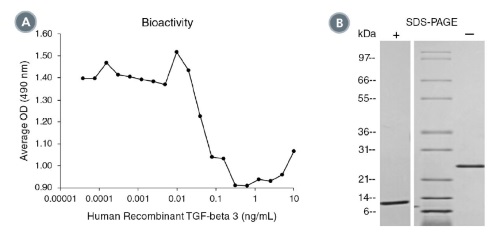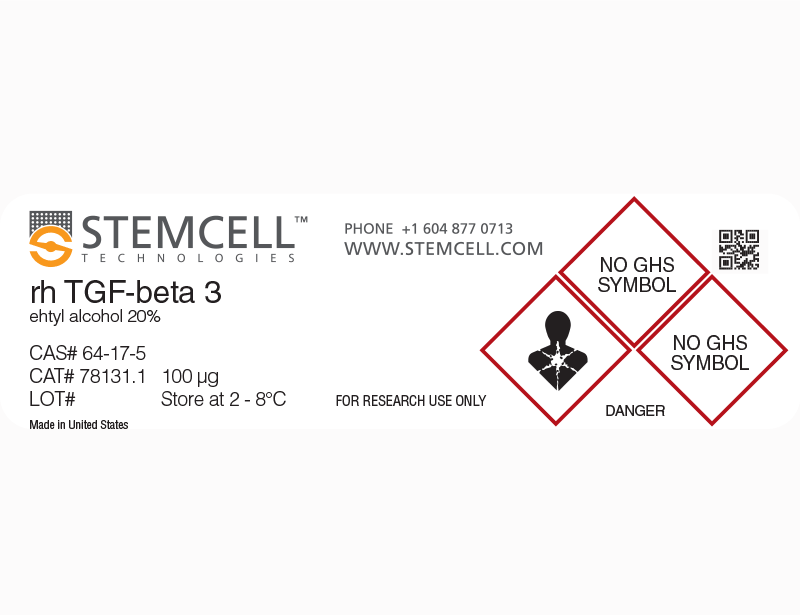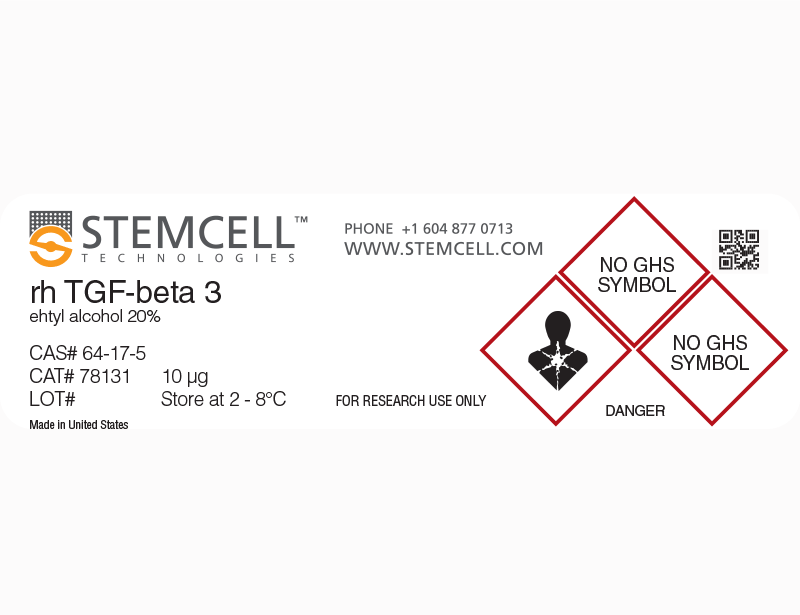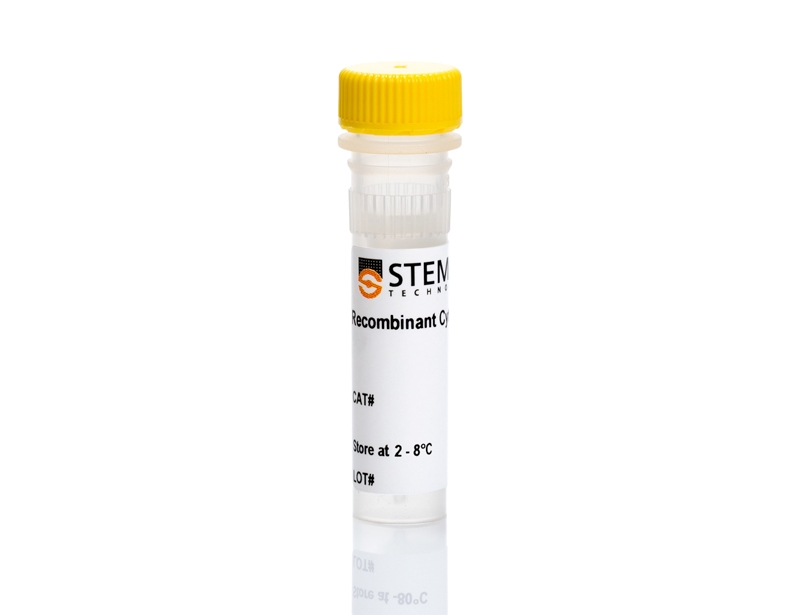Human Recombinant TGF-beta 3
Transforming growth factor beta 3
概要
Transforming growth factor (TGF) beta 3 is a member of the TGF-β superfamily and regulates diverse cellular phenotypes. TGF-beta 3 binds to serine-threonine kinase type I and II receptors and activates signal transduction through SMAD2/3 proteins, thus regulating a variety of functions, including cell proliferation, differentiation, wound healing, apoptosis, and metabolism (Massagué; McDowell et al.). TGF-beta 3 enhances glycosaminoglycan production by mesenchymal stromal cells, stimulates scar-free healing, and improves glucose tolerance and phenotypic changes in adipocyte morphology (Hall et al.; Holton et al.). TGF-beta 3 induces proliferation of posterofrontal suture-derived mesenchymal stromal cells, and stimulates expression of fibroblast growth factors 2 and 18 (James et al.).
Subtype
Cytokines, Growth Factors
Alternative Names
ARVD, FLJ16571, TGFB3, TGF-b3, Transforming growth factor beta-3
Cell Type
Mesenchymal Cells, PSC-Derived, Mesenchymal Stem and Progenitor Cells
Area of Interest
Stem Cell Biology
Molecular Weight
12.9 kDa monomer; 25.7 kDa dimer
Purity
≥ 95%
技术资料
| Document Type | 产品名称 | Catalog # | Lot # | 语言 |
|---|---|---|---|---|
| Product Information Sheet | Human Recombinant TGF-beta 3 | 78131, 78131.1, 78131.2 | All | English |
| Safety Data Sheet | Human Recombinant TGF-beta 3 | 78131, 78131.1, 78131.2 | All | English |
数据及文献
Data

(A) The biological activity of Human Recombinant TGF-beta 3 was tested by its ability to inhibit proliferation of HT-2 cells in the presence of IL-4. Inhibition of cell proliferation was measured using a fluorometric assay method. The EC50 is defined as the effective concentration of the growth factor at which cell proliferation inhibition is at 50% of maximum. The EC50 in the example above is 0.0445 ng/mL. (B) 1 μg of Human Recombinant TGF-beta 3 was resolved with SDS-PAGE under reducing (+) and non-reducing (-) conditions and visualized by Coomassie Blue staining.




